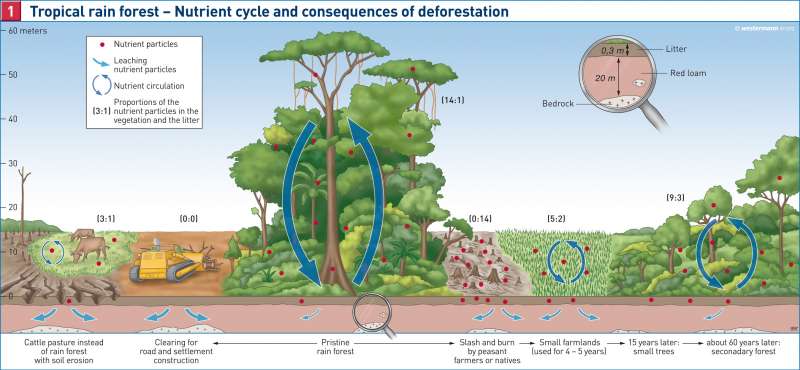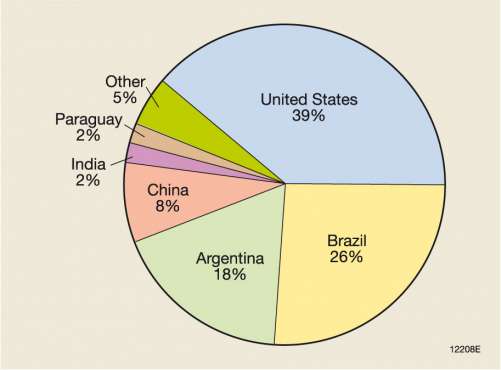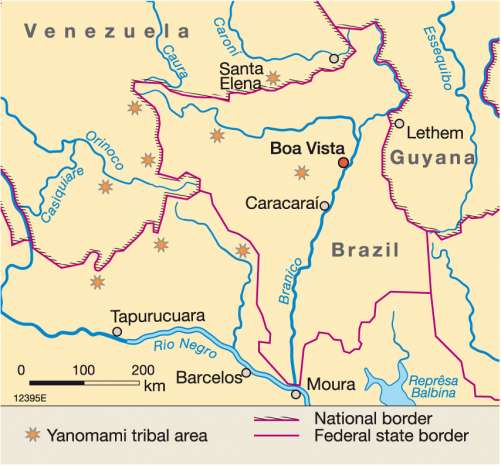Tropical rainforest — Nutrient cycle and consequences of deforestration
South America
978-3-14-100790-9 | Page 150 | Ill. 1

Information
The ecological disadvantages of the tropics are proving to be particularly problematic in the clearing of tropical rain forests. This is because nutrients in the tropical ecosystem are stored in the biomass and not in the soil — in the untouched rain forest the ratio of nutrient particles in the vegetation and litter is 14:1. The clearing of the tropical forests results in the disruption of its nutrient cycle. Whereas all the nutrients are located in the litter immediately after an area has been cleared by burning, the soil quickly loses its fertility though leaching. On a cattle range the ratio of vegetation to litter is only 3:1 and on land used for small-scale agriculture the ratio after four to five years is approximately 5:2.Further Implications of Deforestation:
- The extinction of many animal and plant species
- Reduced evapotranspiration (evaporation of plants and soil) resulting in both a decrease in rainfall and changing annual rainfall patterns with unusually dry conditions
- Increased soil erosion
- Increased CO? levels in the Earth's atmosphere (ca. 8—10%) as a result of fire clearance, which is expected to result in increased global warming.
H. Kremb; Ü: J. Moar, M. Dahl






